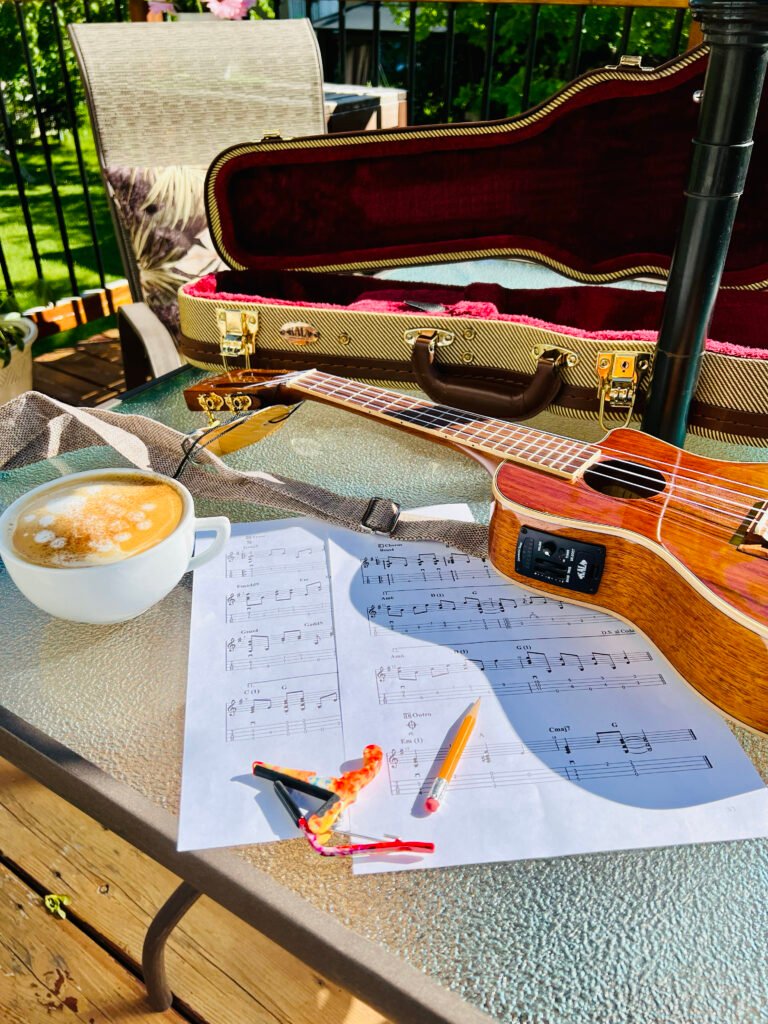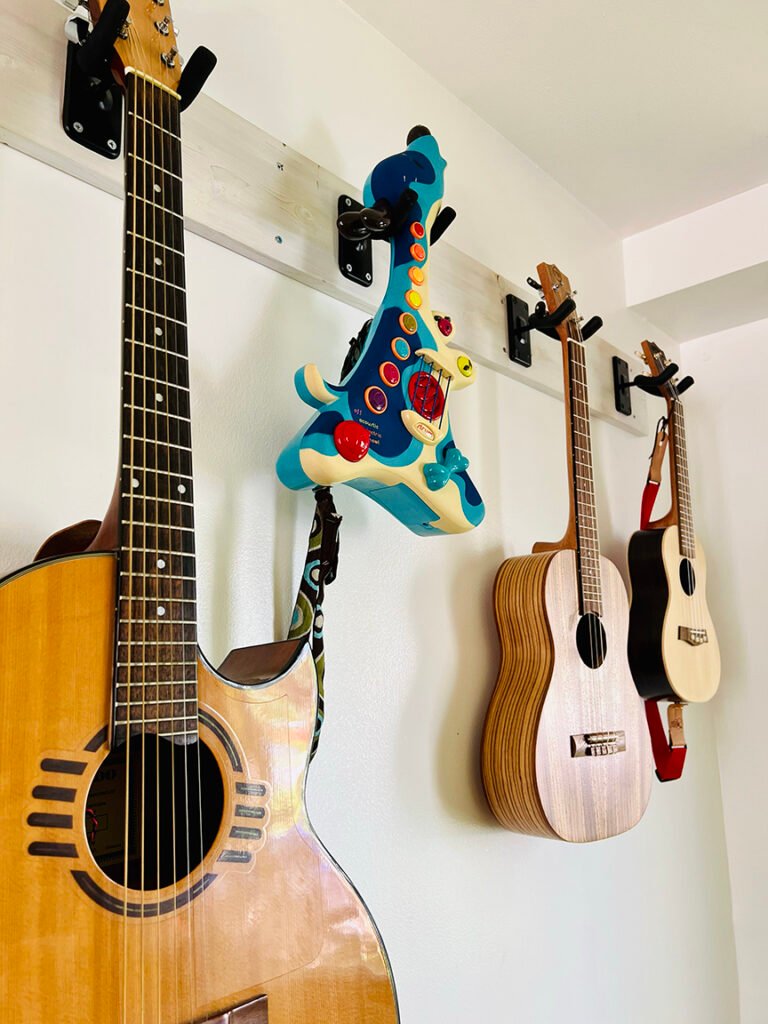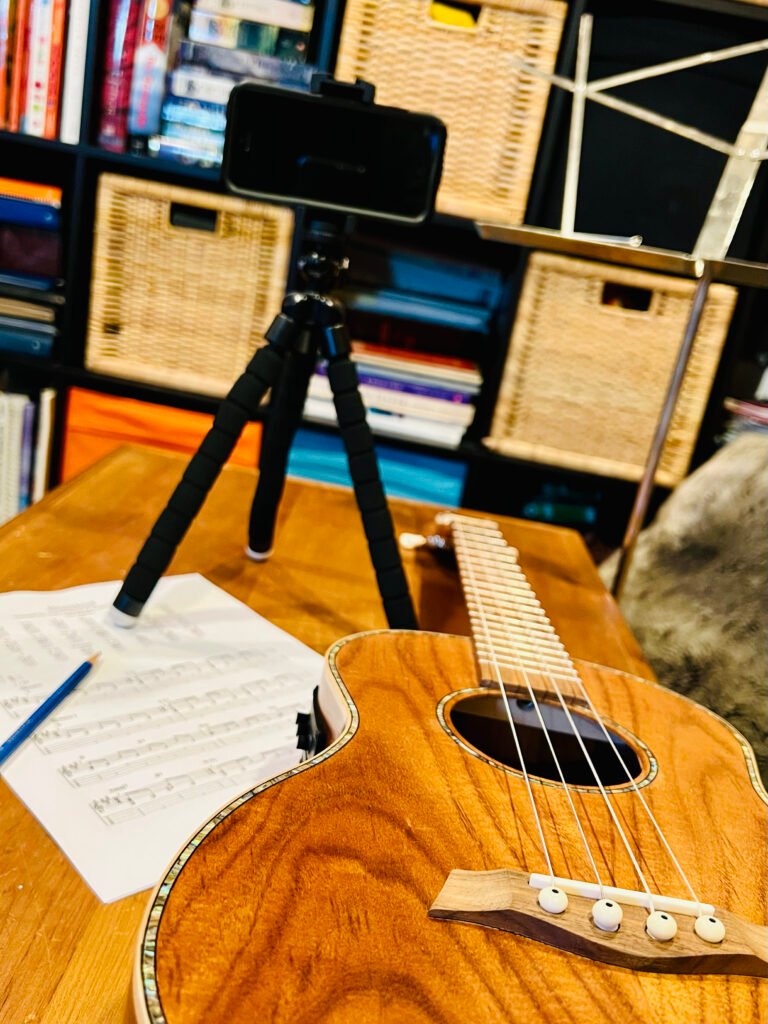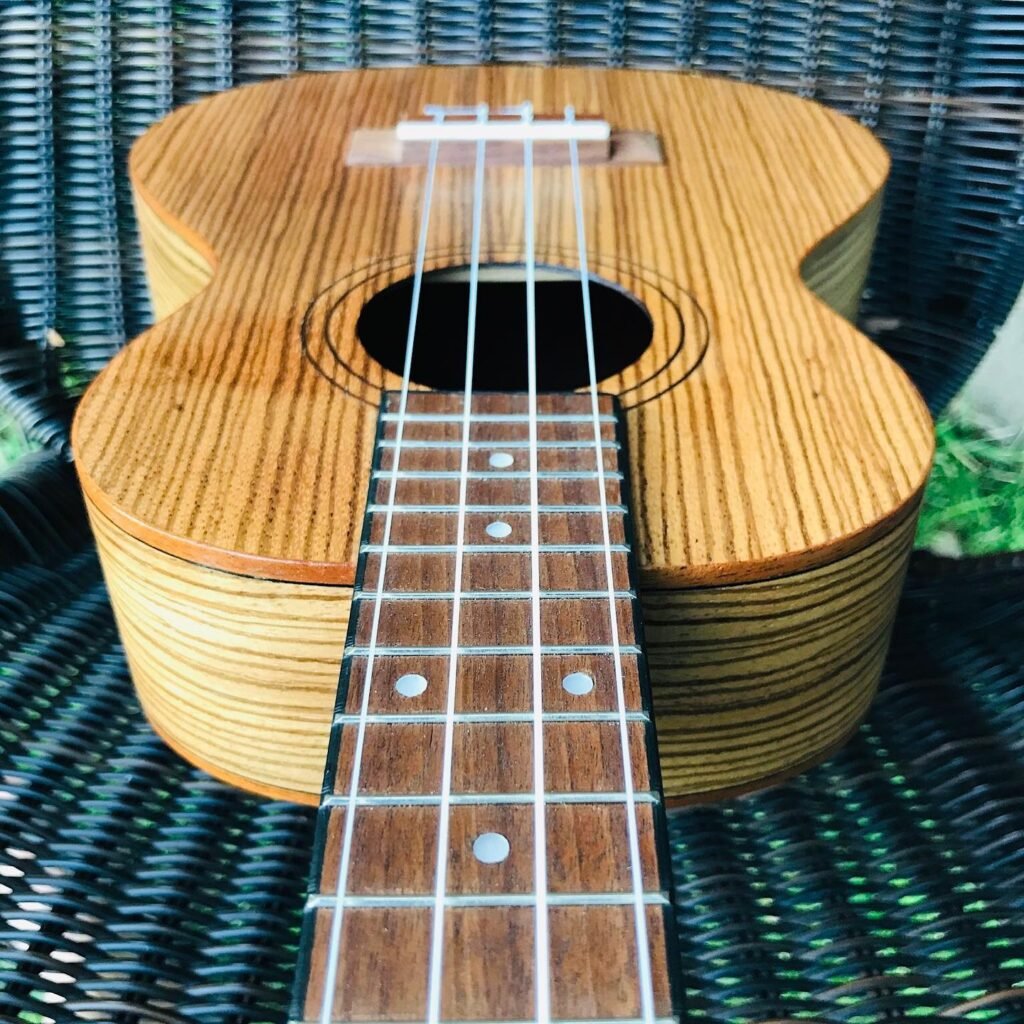During the pandemic we all found new hobbies or skills to keep us distracted and our hands busy (mostly so we weren’t using them to eat snacks constantly). But now, as restrictions ease and schedules fill back up, we’ve got less and less time to spend on those pastimes that brought us so much joy when we needed it most.
Luckily, it really doesn’t take much practice time to keep growing and improving your musical skills. Usually 5-15 minutes, 2-3 times a week will keep you moving forward in your musical journey. A bit of purposeful practice time goes a long way. Here are some ideas to help you get the most out of your time:
- Set up your practice space
Having a quiet, well lit, equipped place to practice may seem basic, but your environment can dramatically impact your success when you practice. If your tuner or capo is in another room, or you get distracted by texts from work, or there’s a pile of laundry waiting to be folded right beside you, chances are the practice will be affected.

- Set goals
While it can be fun to just randomly play through music, it’s always good to set an intention for your practice time. Whether you play for a certain length of time to build stamina, to just practice riffs, or to memorize a verse, bite size learning pieces contribute to achieving larger goals. Organising your practice also tends to add variety to your sessions, which can be motivating and inspiring.
- Play along
Working on a particular chord? Trying to keep a steady beat but keep speeding up or slowing down? New strum? Find a tune in the key you’re practicing and play along! Recorded music acts as a metronome and if you follow along, you’re not only practicing the chord changes, but the rhythm as well.

- Close the book
Sometimes it’s nice to simplify things and focus on only one thing such as technique, chord changes, or strums. When we play any fretted instrument, we are actively doing so many things: left hand fingering, right hand strumming, reading music (sometimes chord changes, melody and lyrics), and often singing. By removing some of these layers of parts, you can focus on perfecting one part at a time.
- Focus on the hard stuff
While it’s fun to play through the parts of the music that you know well, if you’re limited for practice time, the real work needs to happen on the parts where you struggle. Find the tricky parts first; the difficult changes, the chords you miss consistently, the spots where you wish you had an extra beat to hit the note on time. Spend your time working out these challenges, and it’s time well spent.
- Record Yourself
Not only does a recording give you immediate feedback, but it also becomes a milestone marker in time. When you look back a few weeks later, your progress is going to be so much more evident. Even better than an audio recording is taking a video. Seeing yourself on video allows you to evaluate your technique and to identify any tension in your playing.

- Have a pencil ready
Anyone who has ever taken a lesson with me has heard my passion for this simple, must-have accessory. Having a pencil on hand to jot down changes, notes, or reminders really helps your practice. Pencils with erasers are even better! The next time you pick up a piece of music, even if it’s been a while, those simple notes help you avoid mistakes.

